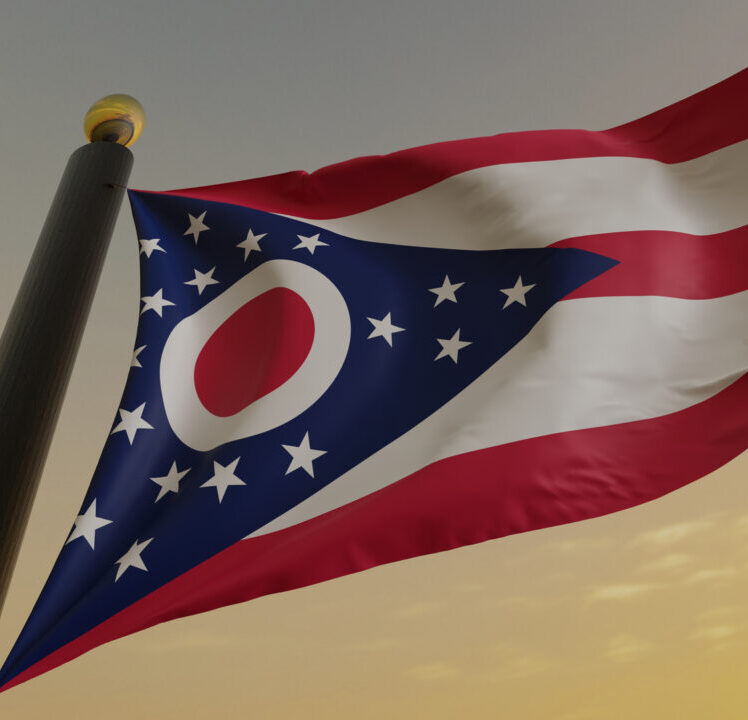- Casino News
- USA News
Ohio Moves Forward to Legalize Online Sports Betting


Balancing Revenue and Competition
Ohio lawmakers have introduced a sweeping bill that could open the door to online casino gaming and an online lottery in the state, potentially marking the final major attempt at online gambling expansion in the U.S. this year. Sen. Nathan Manning unveiled Senate Bill 197, a comprehensive 701-page proposal that aims to reform Ohio’s gaming laws to include iGaming and digital lottery offerings.
Ohio’s year-round legislative calendar gives the bill a distinct advantage over similar efforts in other states, where time constraints often hinder progress. Past experience shows that states with longer sessions have a better track record of passing complex gaming legislation.
This is Ohio’s second push in 2024 for online casino legalization. Last year’s bill, introduced by Sen. Niraj Antani, came late in the session and stalled in committee, failing to gain traction. Manning’s earlier introduction signals a more strategic approach to building support.
The bill’s financial terms reflect a tough stance on the gaming industry. Licensing fees for land-based casinos and racetracks looking to offer online services would start at $50 million, with $5 million renewal fees every five years. A 36% privilege tax on gross revenue would apply, making Ohio’s tax environment comparable to Pennsylvania’s, which is known for its aggressive approach.
The Bill
This structure may appeal to legislators focused on maximizing state revenue while protecting existing brick-and-mortar gambling interests, including casinos, racetracks, and the state lottery. These groups often oppose online expansions fearing revenue losses.
JACK Entertainment, a major Ohio casino operator, has publicly criticized previous bills for threatening the retail gambling sector. The bill’s preferential terms for operators running their own online platforms might slightly ease these concerns but are unlikely to win their full support.
The bill also opens the door for potential market maneuvers similar to those seen in Illinois, where DraftKings circumvented restrictive third-party rules by acquiring a retail casino. Such a scenario could influence both local operators and out-of-state entrants in Ohio.
With SB 197 now before the Ohio legislature, the state stands as the most likely candidate this year to expand legal online gambling, though hurdles remain. The coming months will reveal whether the bill can overcome opposition and carve out a new chapter for gaming in the Buckeye State.
The Analysis
Ohio’s Senate Bill 197, introduced by Sen. Nathan Manning, represents a critical test case in the ongoing expansion of legalized online gambling in the United States. With other states’ efforts faltering, Ohio may be uniquely positioned to succeed, due largely to its year-round legislative session and a bill crafted to navigate a complex web of stakeholder interests.
The 701-page bill’s scope is broad, addressing iGaming and online lottery legalization while restructuring the state’s gaming framework. Unlike many past attempts, this bill was introduced early in the session, providing more runway to build bipartisan consensus and refine contentious provisions.
One of the bill’s defining features is its aggressive fiscal approach. License fees of $50 million upfront and a 36% gross revenue tax echo Pennsylvania’s heavy-handed model. This approach risks deterring new entrants, particularly smaller operators, but could generate substantial state revenue if the market performs well. The tax structure also protects established retail operators by imposing higher fees and taxes on out-of-state and third-party online operators—an unusual but deliberate move to limit competition from outside interests.
This protectionist tilt appears designed to placate incumbent stakeholders such as casinos, racetracks, and the state lottery, groups historically resistant to online expansion. JACK Entertainment’s opposition to previous bills highlights this tension. While offering more favorable terms to local operators running their own online platforms may ease some concerns, the bill’s impact on market competition remains a point of contention.
Ohio’s proposed licensing fees and tax rates are among the most aggressive in the country, designed to maximize state revenue while protecting existing retail gambling interests.
Conclusions & The Future
Interestingly, the bill’s structure could incentivize strategic acquisitions. Illinois’ experience suggests that third-party operators may seek to bypass punitive fees by purchasing retail licenses outright, effectively gaining market access at a discount. Such dynamics could reshape Ohio’s gambling landscape by merging retail and online interests but also raise questions about market concentration and competition.
Ultimately, SB 197 reflects a balancing act between maximizing state revenues, safeguarding existing gambling businesses, and fostering a viable online market. Ohio’s size and demographic profile position it similarly to Pennsylvania, which has demonstrated that such a model can work, albeit with trade-offs.
As the bill progresses, its fate will hinge on whether legislators view these trade-offs as acceptable and whether opposition from influential retail operators can be mitigated. Ohio’s experience will offer important lessons for other states contemplating online gambling reforms amid evolving market and political conditions.








